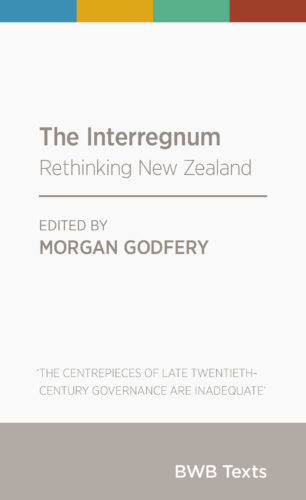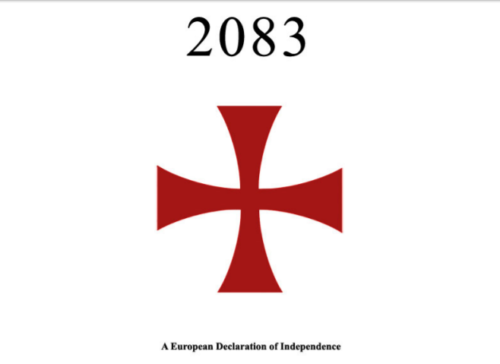
The Interregnum: Rethinking New Zealand is a small book of essays that is for sale at the Volume bookstore in Nelson, by Bridget Williams Books. The blurb on the back asks the question of whether New Zealand’s political settlement is beginning to fray, and purports to “interrogate” the future from a youth perspective.
The first essay, by editor Morgan Godfery, is called “The Voices of A New Generation” and opens by relating an anti-TPPA demonstration in Auckland. It breathlessly describes the excitement of thousands of diverse people coming together to oppose the signing of the multilateral trade agreement.
Reading this piece, something about it speaks to the lack of purpose that the young generation now has. The fight against apartheid seemed meaningful at the time; it seemed a great evil was being fought. A law that says that a large section of the population are second-class humans, for no other reason than skin colour, seems like the sort of arbitrary and cruel treatment that everyone should be against.
But can the same be said of international trade? Who really understands it well enough to decide? And so what if “trade agreements are signed”?
By the fourth page of this essay there is already a Marx quote, which bodes poorly. The reader gets the sentiment that the new voice here is going to be an echo of the same social justice warriors seen overseas. If not, why oppose something as vague and nebulous as the TPPA, instead of protesting about poor wages, poor housing, poor mental health outcomes?
The essay finds its feet when it hones in on the real enemy: neoliberalism. Godfery mentions the damage done to the national psyche by the Mother of All Budgets, and it feels like he speaks for many when he says that the children condemned to poverty by Richardson’s Budget are now adults, some of us with our own children.
But again, this speaks to the confusion in the New Zealand Left. What to make of the fact that the signing of the TPPA was protested under a National Government, with many prominent Labour supporters in attendance, and then the Labour Government went and signed it anyway? No-one knows yet if Labour will get criticised for their evident support of neoliberalism, or whether people will let it pass.
This introductory essay declares that the book is for those who have “a fierce desire to radically reshape politics.” It proposes that instead of focusing on “returns on investment”, that we return to a politics of “higher principles and values”.
This is all very well, but the question that strikes one is: whose higher principles and values? Because usually when the working class votes for people promising to govern by higher principles, it turns out that those principles only apply to a chosen few groups, and if you’re not one of them then you’re “privileged” (“privileged” means “untermensch” in social justice speak”.
We can see this now with Jacinda Ardern’s decision to give Manus Island “refugees” her highest priority, while saying nothing about the Kiwis suffering from the illegal status of medicinal cannabis. Unfortunately for medicinal cannabis users, official victim status has so far eluded them, and so they continue to be ignored.
Concluding with half a dozen mentions of the word “love”, this essay promises that the book will make for interesting reading for the sake of political philosophy. However, it’s not possible to believe that a book that opens by quoting several Marxists could be entirely trustworthy or honest, even if it is earnest.
It remains to see what these higher principles are.



